Welcome to Citizen Scholar! Since launching four months ago we’re reaching hundreds of people a week, so we thank you for your support. If you enjoy our writing on civic virtue and individual excellence, we humbly ask you to share Citizen Scholar with your family members and friends who may enjoy it. The contents of the audio and text formats are identical and meant to accommodate your preferences. Please let us know if you have any feedback - we’re always looking for ways to improve!
Introduction
Of all the books we’ve discussed in Citizen Scholar thus far, this one is perhaps the most likely to be referenced by future historians trying to understand the twenty-first century. Unlike with other books we’ve covered, this belief doesn’t depend on it having something unique to say about civic virtue / individual excellence or that it records facts about our time that can’t be found elsewhere.
Rather, Principles for Dealing with the Changing World Order matters as a case study in elite thought and opinion in the year 2021. We’re not suggesting that Ray Dalio is a mouthpiece for the entire class of people who govern us in the same way as North Korean state media reports can be interpreted as the regime’s public position.
However, this book is the latest in a series of “Principles” books that other prominent business / thought leaders rushed to endorse and that heavily influenced knowledge workers; the first book in the series, Principles, was the #1 business book for 2017 on Amazon. Dalio concedes in the book that all internal orders are run by elites and acknowledges that he’s saying in public what many of his friends may only admit in private.
As he winds down his career running the world’s most prominent hedge fund for the last 50 years, Dalio set out to explain the state of global geopolitics and economics with lessons from history. He proposes a cyclical view of history, which he describes as a perpetual motion machine. The rise and fall of empires through history, Dalio argues, are best viewed through the lens of “Big Cycles”, especially:
The Big Cycle of Money, Credit, Debt and Economic Activity
The Big Cycle of Internal Order and Disorder
The Big Cycle of External Order and Disorder
The unifying thread through these cycles is the prime motive of people’s desire for wealth and power. Dalio acknowledges that people also fight over ideology and religion but insists on the greater importance of material interests.
Tabula Rasa View of History
After explaining his observations from studying the history of a series of great empires, Dalio moves on to explaining the predicament of the United States. He describes in detail how reserve currency status passed from the Dutch to the British to the Americans, and how the USA’s status is being challenged by China. Finally, he makes some humble and brief predictions about the future.
Before calling balls and strikes on the book, we should note that Dalio does somewhat shield himself from criticism by insisting that his ambitious analysis is still a work in progress and is using vernacular / reductionism to prioritize clarity over precision. That latter hedge is probably of little solace to professional academics in the fields he confidently discusses. The looseness of Dalio’s methodology basically means that initial reactions to his conclusions came down to whether they already aligned with our opinions or not. An exception is Dalio’s economic and financial analysis. While we don’t think his analysis may be as applicable to pre-modern economic cycles as he suggests, it’s thorough, insightful and valuable as a whole. This ought to be expected given his status as a legendary macro investor.
However, as Aristotle pointed out twenty-four centuries ago, great skill and achievement in practical moneymaking does not a wise ruler or philosopher make. Dalio’s cyclical view of history is not an original idea of his (which he admits) and may not be as objectively observable as he suggests, even if we are personally sympathetic to it. There were also points in the book where we cringed at certain generalizations, such as that the European Renaissance was a more peaceful period than it was thanks to newfound rationality and commercial success.
Generally, Dalio admits that he is a relative novice in the study of history and was surprised to find so many recognizable patterns in it. This is emblematic of a tragic shortcoming in our current elite. We don’t expect the people who govern us to know much at all about history before their own lifetimes, and usually very little before World War II. We at Citizen Scholar don’t understand the pretensions of people who want to influence policy without understanding the very context of the world they inhabit, and we commend Dalio for attempting to remedy this in his late career.
Self Interest? Sophistic Defense of the CCP
These benevolent intentions may be in conflict with his long apology for the rule of the Chinese Communist Party (CCP). Dalio’s analysis of China today contains the familiar explanations of its rise alongside a smoothing over of the regime’s crimes; it also implies that due to cultural differences, China’s inhabitants don’t care as much about freedom and that their form of government therefore suits them. While it may be alarming to hear this view from a prominent informal advisor to government officials, it’s not surprising. What’s more unique here is hints about motive for Dalio’s unwavering support for China, which he was recently shamed for publicly. He doubled down on his support in a more recent interview with Nikkei:
“I think that foreigners don't understand what's going on in China. I'm very lucky, because I've been going to China for 34 years, and I've developed relationships with top policymakers, and I understand what they're thinking. One of the top leaders -- I won't quote who it is -- said the United States is a country of individuals and individualism, and it is bottom-up. China is an extension of the family, and the leaders operate like strict parents.”
Awareness has grown about American elites’ financial interests in China, which Dalio has more of than most, but the above quote and passages of the book highlight a less widely understood phenomenon: the effective flattering of American elites by the CCP. Wealthy businessmen like Ray Dalio and Steve Schwarzman interact with Chinese officials and behave as statesman without bearing some of the responsibilities. To people who are already wealthy, this form of seduction may appeal to an underserved part of their ego and is potentially more effective. It doesn’t feel like a bribe and we’re all more likely to like people who seem to like us. In the case of this book, Dalio gushes about how high ranking CCP officials read more philosophy than American politicians, giving the example of one reading Kant’s Critique of Pure Reason before meeting with President Trump.
We understand that Dalio presents himself as coldly rational and simply trying to observe reality in his writing and extensive study of history. Every society will have hierarchy and an elite – we only wish we had more elites who still dared to think that this country’s values were worth preserving over communist autocracy. That sentiment seems absent or muted at times alongside Dalio’s admiring description of China’s rise and its fighting chance to overthrow the American order. Future historians may note this example of a wildly successful elite who didn’t feel strongly about fighting against history for the preservation of the country he became so successful in.
Canary in the Coal Mine
An odd phenomenon we’ve observed since the start of the COVID-19 pandemic is how mainstream awareness of certain key events lags behind, only to catch up after a strange trigger. For example, many or most Americans on both sides of the political aisle laughed off COVID-19 until actors and NBA players started testing positive in March 2020. The Wuhan lab leak theory was a reprehensible conspiracy theory to respectable society until Jon Stewart made it acceptable on Colbert’s show. While it’s too early to say with conviction, we think there’s a good chance this book, if as influential as Dalio’s past books, could represent the moment some old ideas come flooding back in to mainstream respectability.
Dalio dusted off some ideas that we think are potentially true but which are still laughable in mainstream thought. He warns that the current American order isn’t immune to the chaos that has accompanied other empire collapses, and that intelligent people could have to consider how to shield their families from it in the future. Dalio doesn’t have much good to say about the press’ dedication to reporting the truth either. Most shockingly, he cites decadence - the tendency of wealthier people to increasingly focus on savoring life over productivity or making an impact - as a key force in the decline of empires, including the United States’. While we’ve been positive and critical of certain key elements in Principles for Dealing with the Changing World Order, we do credit Dalio for showing this courage. We hope that our work here with Citizen Scholar helps to serve as a (small) bridge in uniting people while promoting continuous, life-long learning for our readers.
All the best,
The Citizen Scholar Team




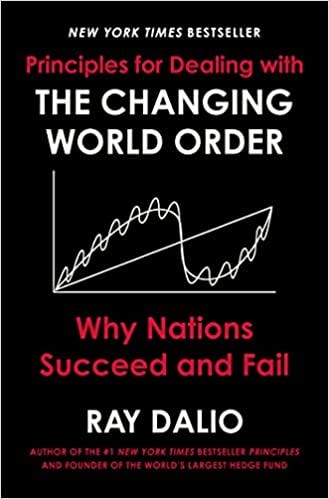


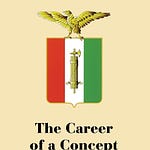
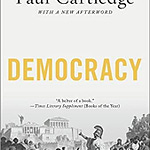

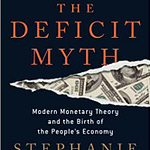


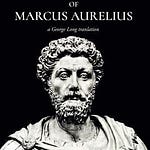
Discussion #22: Principles for Dealing with the Changing World Order: Why Nations Succeed and Fail, by Ray Dalio